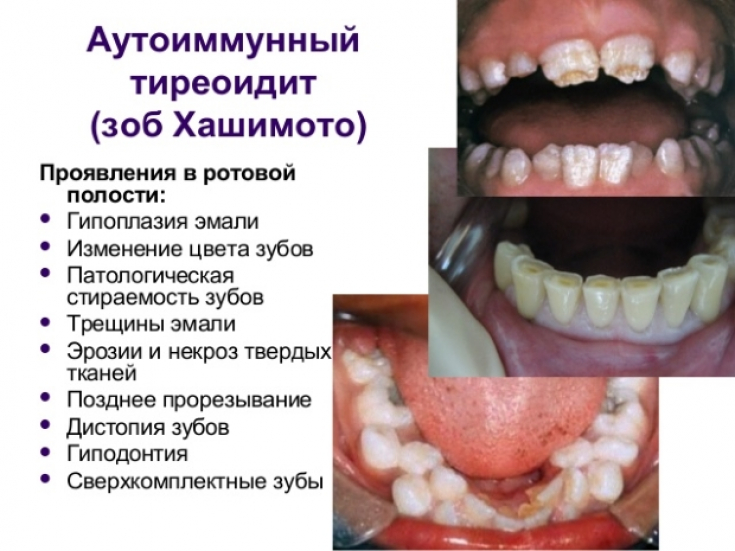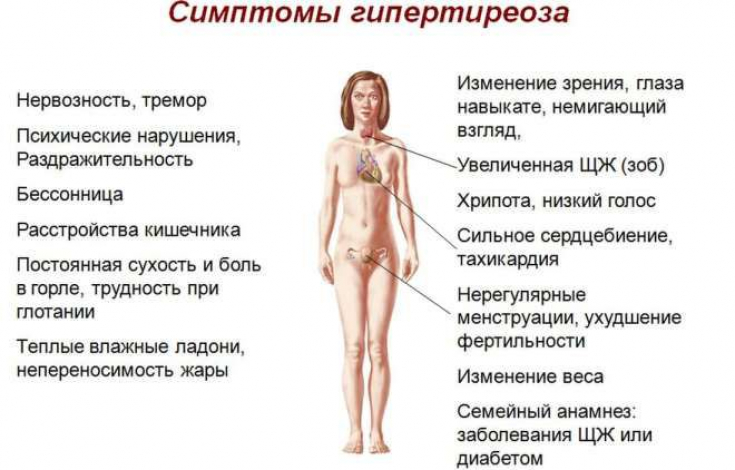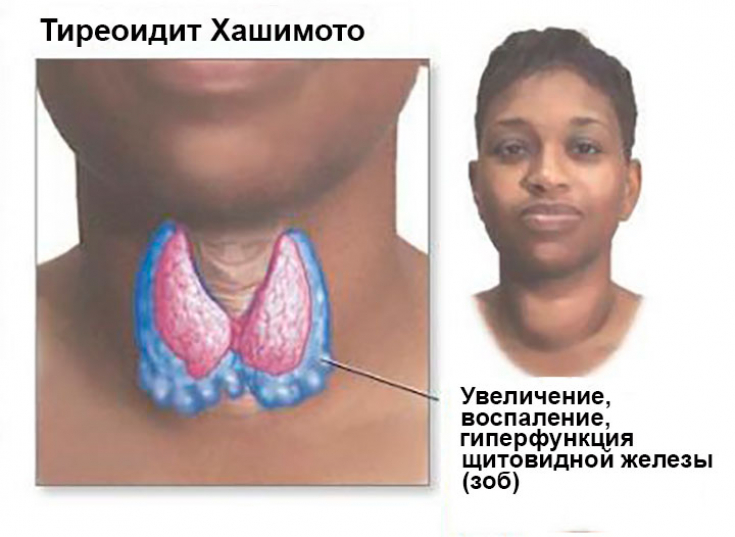Thyroid – an important organ, therefore, each of us is obliged to monitor its health. A common disease of the thyroid gland is thyroiditis, which is characterized by inflammatory processes of various forms. Thyroiditis symptoms are different – depending on the form of the disease.
estet-portal.com will introduce you to the various etiologies of the disease and its inherent symptoms. Often, it is the timely identification of signs that helps to avoid the progression of the disease and gives high efficiency to the treatment process. The article will point to symptoms, reveal the varieties of the disease and diagnostic methods.
Thyroiditis: symptoms of an autoimmune form of the disease
The main forms of the disease are autoimmune and acute. Each of them has its own specific symptoms.

So, autoimmune thyroiditis at the initial stage is characterized by:
• a feeling of discomfort in the cervical area;
• difficulty swallowing;
• pain on palpation;
• malaise.
Follow us on Instagram!
When the disease begins to progress, the symptoms change and the patient then suffers from:
• drowsiness;
• frequent constipation;
• weaknesses;
• memory deterioration;
• fatigue;
• edema;
• dry skin;
• low temperature;
• bradycardia.
The autoimmune form of thyroiditis leads to the gradual destruction of the cells of the organ, so at the first sign it is worth visiting a doctor.
Read also: Which products are good for the thyroid gland and which – harmful
Thyroiditis: symptoms of acute and subacute inflammation of the thyroid gland
Acute thyroiditis is characterized by the following symptoms:
• attacks of tachycardia;
• feeling chilly;
• sharp pain in the neck;
• fever.
Subacute thyroiditis is associated with intoxication of the body, so the following symptoms are characteristic of it:
• feeling weak;
• muscle ache;
• malaise and weakness;
• migraine;
• heat;
• excessive sweating;
• tachycardia.

In addition, subacute thyroiditis in the initial stages due to an excess of thyroid hormones is accompanied by:
• trembling limbs;
• weight loss;
• irritability;
• frequent stools.
If we talk about local manifestations, then you will notice redness of the skin of the neck and swelling.
Read also: What is the role of the thyroid gland in human life: its functions
What are the symptoms of fibrous thyroiditis
Such a form of the disease as fibrous thyroiditis, also bearing the name of Riedel, is rarely diagnosed in the early stages, because the general condition of patients has been good for a long time.
First manifestations are:
• slightly coarsened voice;
• feeling of a lump in the throat;
• impaired breathing;
• dry cough;
• difficulty swallowing.

Later, the person feels that it is difficult for him to speak, because the voice becomes hoarse or disappears altogether. This means that the fibrous process has affected the vocal cords, larynx, and trachea. On examination, the doctor notices that the organ is dense to the touch and unevenly enlarged.
The disease is accompanied by a compression syndrome, which is characterized by:
• tinnitus;
• dizziness;
• impaired vision;
• pulsation of neck vessels.
Thyroxine – thyroid hormone that performs vital functions
What are the reasons for the development of diseases of various forms
Thyroiditis also has different causes of the disease, and for a correct diagnosis it is necessary to determine what caused the disease. What are the causes of different forms of thyroiditis:
• an acute form of a non-purulent nature is provoked by organ injury or radiation;
• subacute form develops after a viral infection, which often includes mumps and measles;
• the autoimmune form has a number of predisposing factors, including frequent stress, heredity, benign thyroid diseases, abuse of drugs containing iodine;
• the fibrous form has no definite causes and is equated to the final stage of the autoimmune form.
Thyroiditis: how is the diagnostic process
Feeling the symptoms of one of the forms of thyroiditis, you should consult a doctor for confirmation or denial of the alleged diagnosis. The doctor will conduct a thorough examination with the collection of symptoms, palpation of the thyroid gland and prescribe (if necessary) the following types of diagnostics:
• blood test to determine the number of lymphocytes;
• blood test for thyroid hormones;
• Ultrasound of an organ to determine the size, structure of the thyroid gland, as well as the presence of cysts, nodes, etc.

If the doctor suspects or during the examination determined the presence of some form of thyroiditis, then he additionally prescribes:
• fine-needle biopsy of the thyroid gland in autoimmune thyroiditis;
• radioisotope scanning of the thyroid gland in the fibrous form of the disease.
Depending on the form, thyroiditis has different symptoms, so it is important not to miss the first signs. The thyroid gland is responsible for the normal operation of most processes in the body. A timely trip to the doctor will save you from problems with the thyroid gland.
Read also: 10 symptoms that indicate problems with the thyroid gland






Add a comment